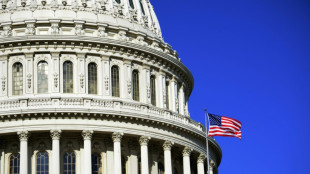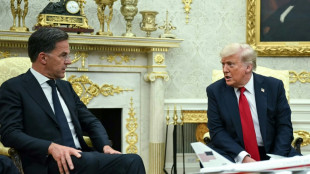Almost 100 killed as Syria sectarian clashes rage
Syrian government forces were advancing towards the southern city of Sweida on Monday amid clashes in the region between Druze fighters and Bedouin tribes that have killed nearly 100 people, according to a war monitor.
As the violence escalated, Israel -- which had previously warned that it would intervene in Syria to protect the Druze -- said it struck "several tanks" in the area, citing security concerns.
The fighting underscores the challenges facing interim leader Ahmad al-Sharaa, whose Islamist forces ousted president Bashar al-Assad in December after nearly 14 years of civil war.
The Syrian Observatory for Human Rights war monitor raised its death toll to 99 killed since fighting erupted Sunday, including 60 Druze, four of them civilians, 18 Bedouin fighters, 14 security personnel and seven unidentified people in military uniforms.
Syrian forces on Monday took control of the Druze village of Al-Mazraa, where Bedouin fighters were also located, an AFP correspondent said.
A commander, Ezzeddine al-Shamayer, told AFP the forces "are heading toward Sweida" city.
In a statement, the interior ministry declared that "army and internal security forces have moved closer to the centre" of Sweida.
Israel, which has attacked Syria in the past months under the pretext of protecting the Druze, said it hit several tanks heading towards Sweida.
The strikes were "a clear warning to the Syrian regime -- we will not allow harm to be done to the Druze in Syria", Israeli Defence Minister Israel Katz posted on X.
Druze spiritual leaders called for calm and urged Damascus to intervene.
But Sheikh Hikmat al-Hijri, one of the three Druze spiritual leaders in Sweida, expressed his "rejection of the entry" of general security forces into the province, demanding "international protection".
- Fear of massacres -
Syria's pre-war Druze population was estimated at around 700,000, many of them concentrated in Sweida province.
The Druze, followers of an esoteric religion that split from Shiite Islam, are mainly found in Syria, Lebanon and Israel.
Following deadly clashes with government forces in April and May, local and religious leaders reached an agreement with Damascus under which Druze fighters have been providing security in the province since May.
The streets of Sweida were deserted, with an AFP photographer reporting gunfire during funerals.
"We lived in a state of extreme terror -- the shells were falling randomly," said Abu Taym, a 51-year-old father in Sweida.
"Traffic on the streets is paralysed, and most shops are closed."
"We fear a repeat of the coastal scenario," said Amal, 46, referring to the March massacres of over 1,700 mostly Alawite civilians in Syria's coast, where groups affiliated with the government were blamed for most of the killings.
"We are not against the state, but we are against surrendering our weapons without a state that treats everyone the same," she added, noting that she and her family escaped Sweida to a nearby village.
In a post on X, Syrian Defence Minister Murhaf Abu Qasra urged his troops to "protect your fellow citizens" from "outlaw gangs" and "restore stability to Sweida".
- 'Lack of state institutions' -
The violence began Sunday when Bedouin gunmen abducted a Druze vegetable vendor on the highway to Damascus, prompting retaliatory kidnappings.
Though hostages were later released, the fighting carried on Monday outside Sweida city, with mortar fire hitting villages and dozens wounded, according to the Suwayda 24 news outlet.
In a Sunday post on X, Interior Minister Anas Khattab said "the lack of state, military and security institutions is a major reason" for the ongoing tensions in Sweida.
The latest bloodshed follows deadly violence in April and May, when clashes between Druze fighters and security forces in Druze-populated areas near Damascus and Sweida killed more than 100 people.
The Observatory said members of Bedouin tribes, who are Sunni Muslims, had sided with security forces during earlier confrontations.
Bedouin and Druze factions have a longstanding feud in Sweida, and violence occasionally erupts between the two sides.
The wave of massacres in March targeting the Alawite community and the subsequent attacks on Druze areas, as well as a deadly attack on a Damascus church in June, have undermined confidence in the new Syrian authorities' ability to protect minorities.
M.Ritter--BP

